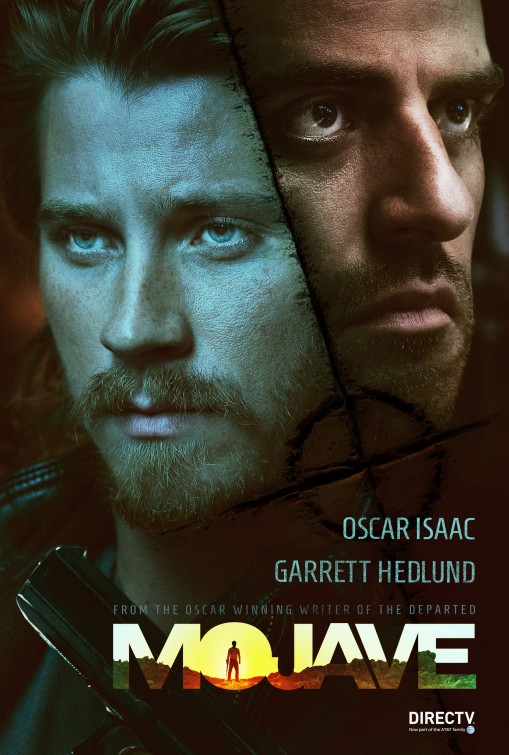A disaffected celebrity incurs the wrath of a menacing drifter in Mojave, a rote psycho thriller that wears its Shakespearian influences on its tattered sleeves before clumsily morphing into Come at Me Bro: The Movie as each of the two determined adversaries engage in a relentless battle of wills. The sophomore directorial effort from Academy Award-winning screenwriter William Monahan (The Departed), this beige, low-budget indie isn’t likely to be remembered as more than a curious foot note in the filmography of rising star Oscar Isaac as roles in A Most Violent Year, Ex-Machina, and Star Wars: The Force Awakens thrust the charismatic leading man ever further up the Hollywood A-list.
In his screenplay for The Departed, Monahan used the foundation of Andrew Lau’s Infernal Affairs to weave a masterful tapestry of fear and paranoia in the South Boston criminal underworld. Their motives cloaked in mystery as they navigated a lethal labyrinth of deception that ensnared cop and criminal alike, the richly drawn characters in The Departed were brought to vivid life thanks to both Monahan’s skillful writing and Martin Scorsese’s masterful direction. In Mojave, Monahan foregoes the luxury of having his words interpreted by one of the most celebrated filmmakers in history, and though his own approach to directing is assuredly solid, passive screenwriting shorthand tries and fails to summon the gravity of Shakespeare as one self-destructive celebrity fights to reclaim his will from a stranger masquerading as the Devil in the flesh. It may have all amounted to something, too, had Monahan taken the care to fully flesh out these two troubled characters. Instead, the two men at the center of this struggle (not to mention every other character in the film) – are mere caricatures made all the less believable by performances that would have benefitted from a bit of nuance.

Perhaps, had Monahan actually been inspired in his writing, the plot of Mojave could have taken precedence over the one-dimensional characters. Instead, the most we can hope for is an existential Twilight Zone twist, but once again Monahan strives to accomplish something vaguely character-based with his denouement, and the result is the dictionary definition of anti-climactic. Much like the story itself, the Devil’s infernal vengeance dissipates into a puff of smoke that’s dissipated before we ever felt the heat of its flame.

| Producer: | William Green |
| Release Date: | January 22, 2016 |
| Starring: | Oscar Isaac, Garret Hedlund, Walton Goggins, Mark Wahlberg, Diana Ramirez, Matt Jones, and Fran Kranz |
| User Rating: | |
| Writer: | William Monahan |
| MPAA Rating: | R |
| Director: | William Monahan |
| Distributor: | A24 |
| External Info: | Official Site |

